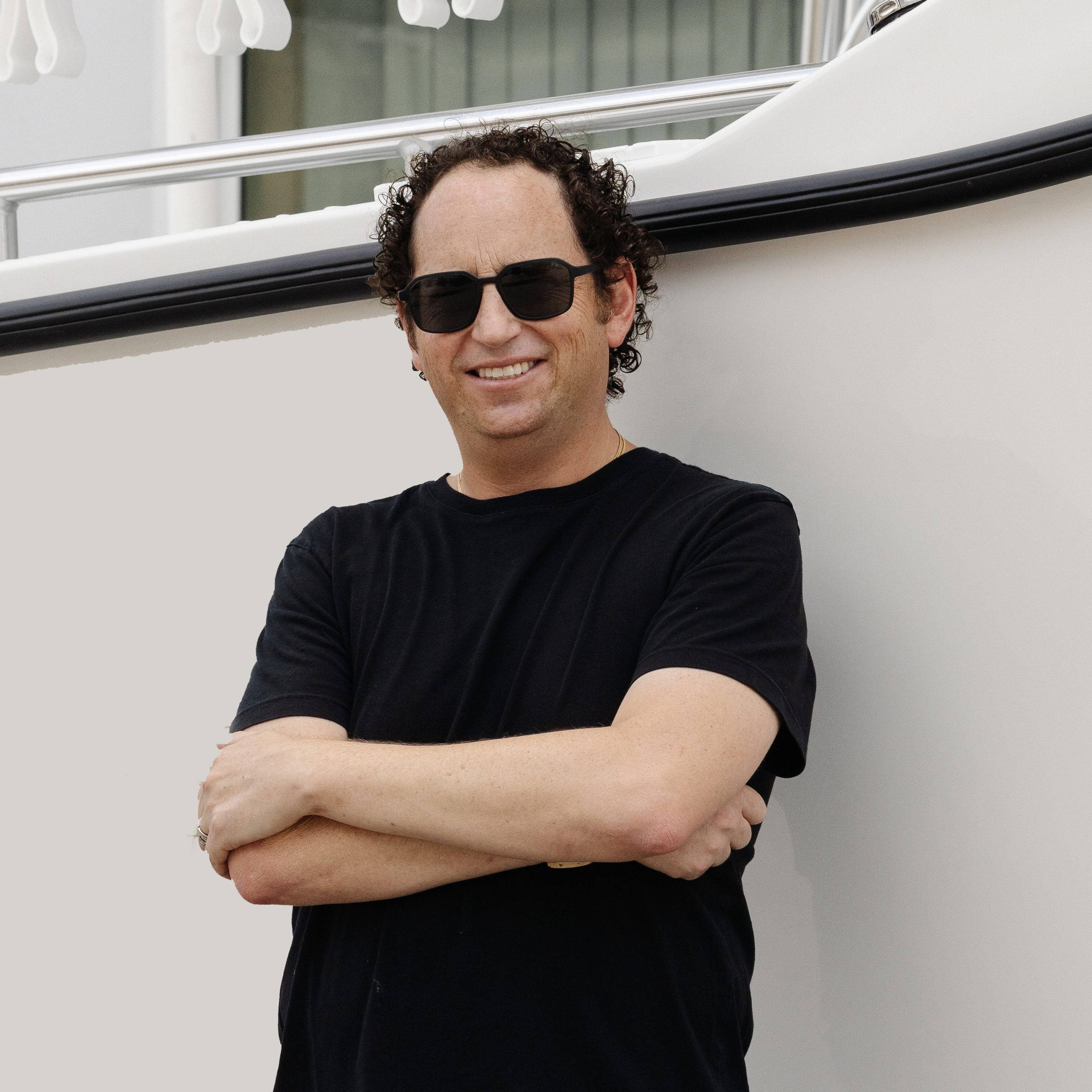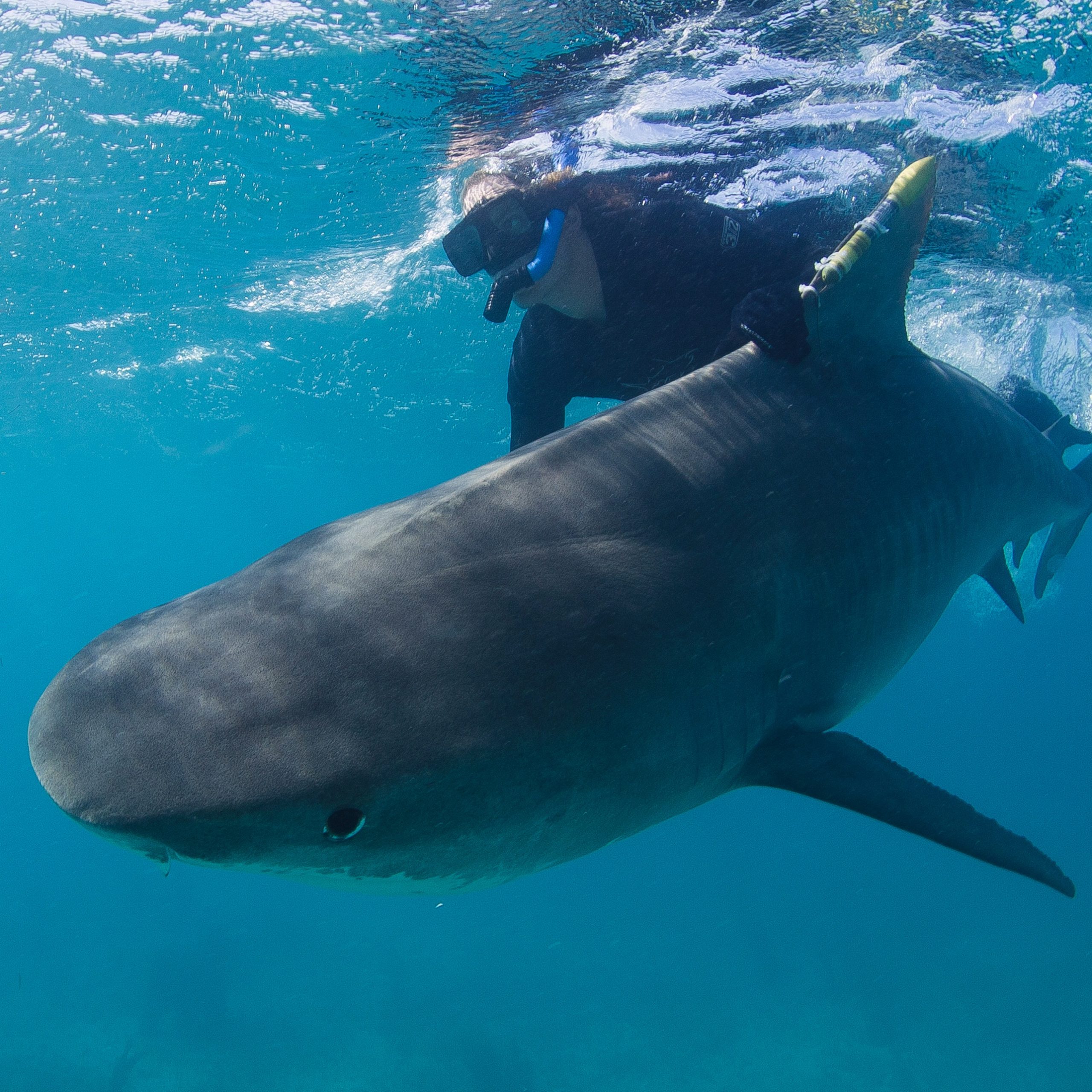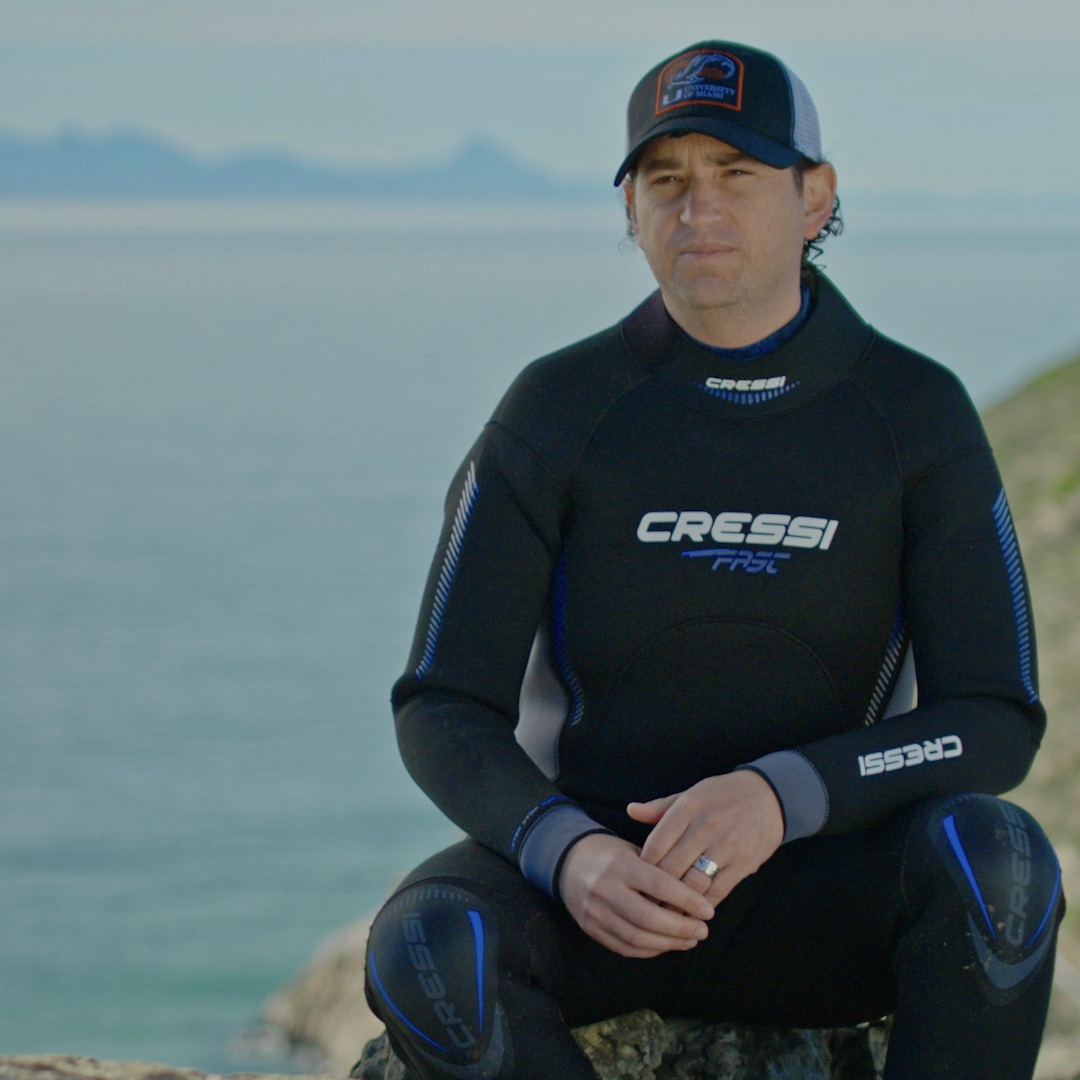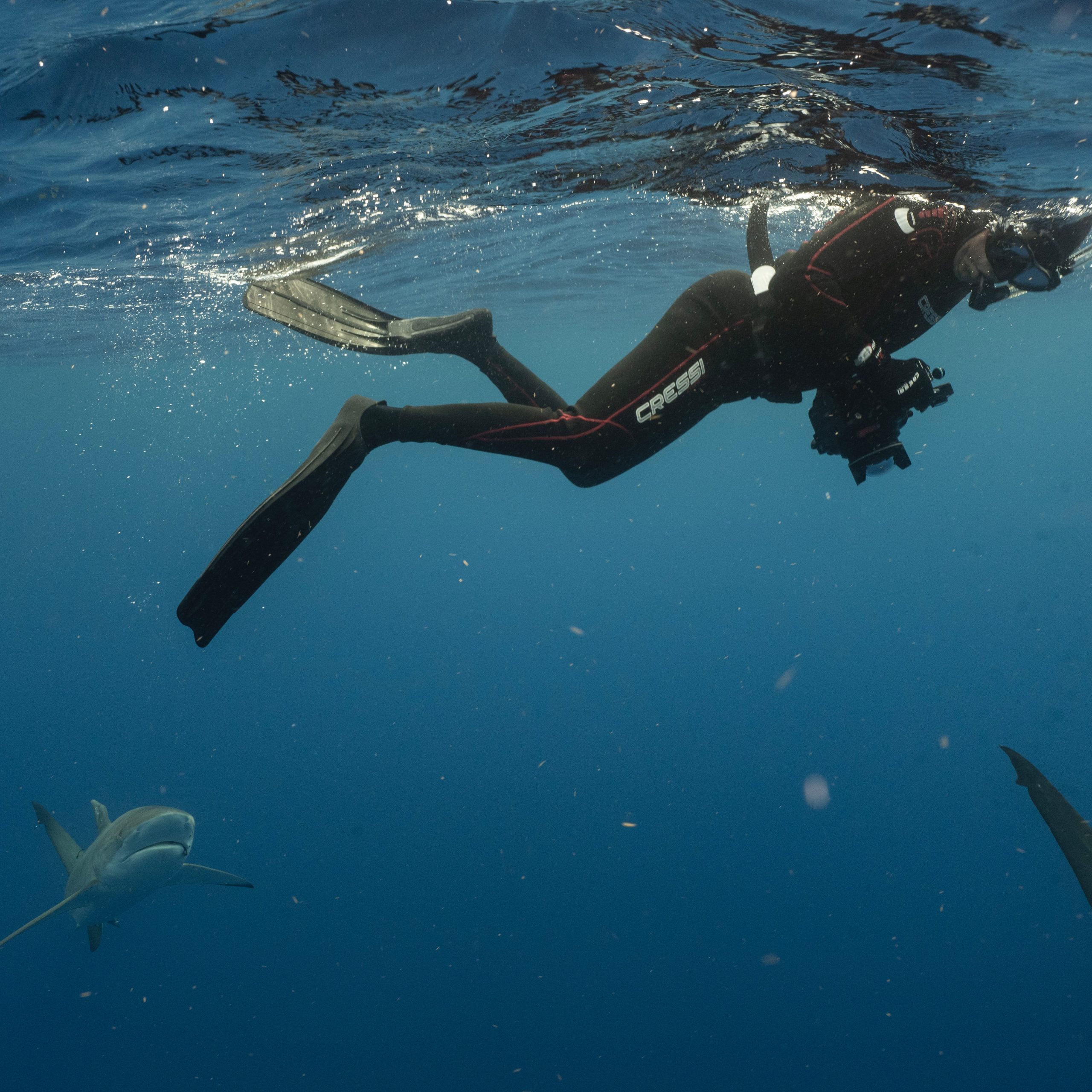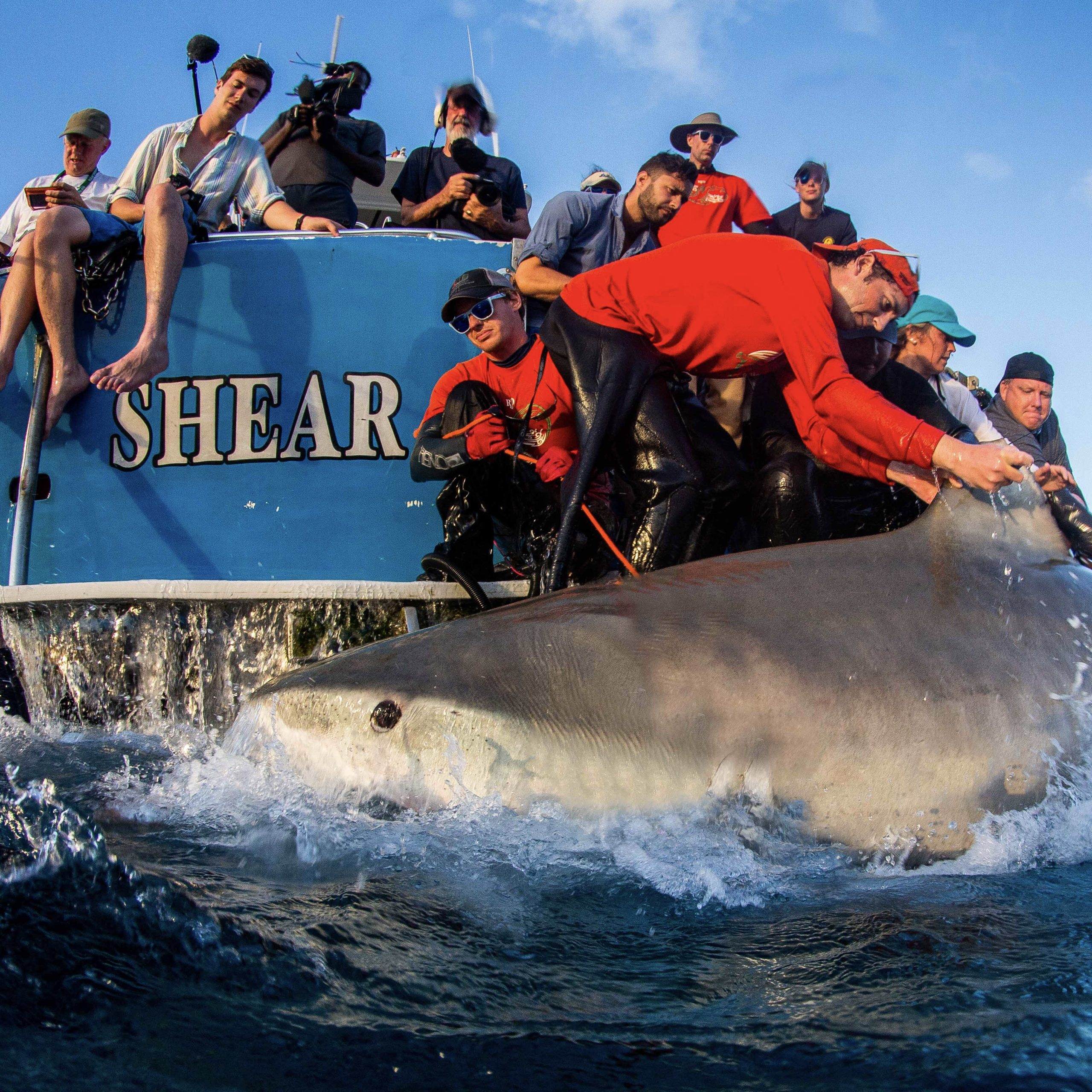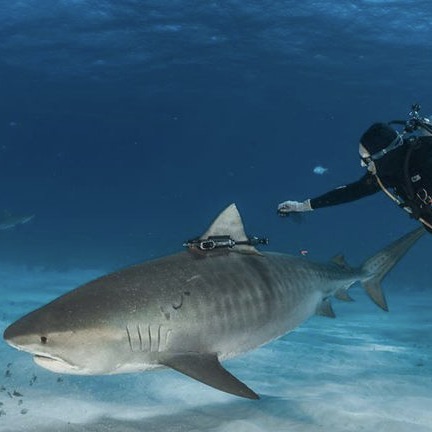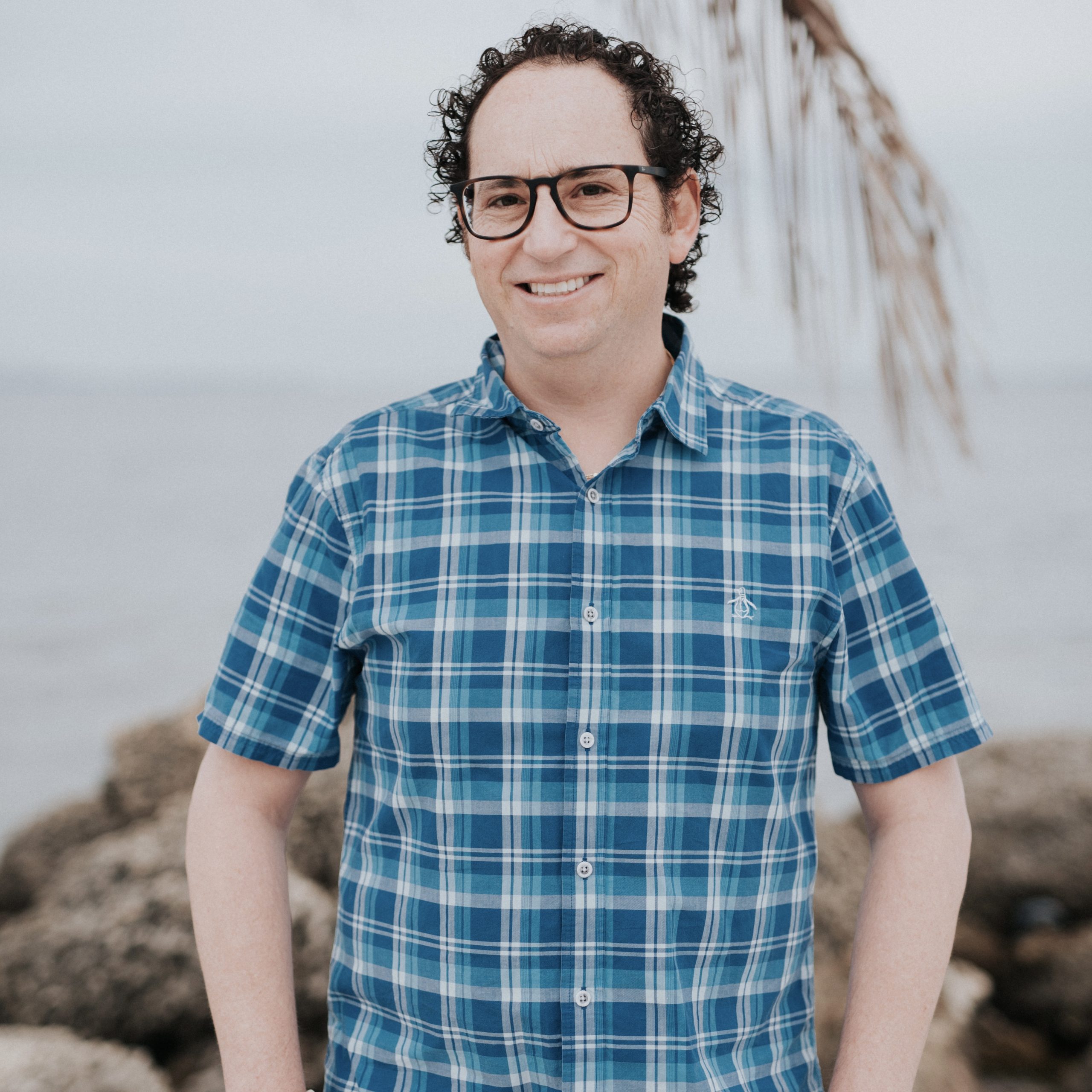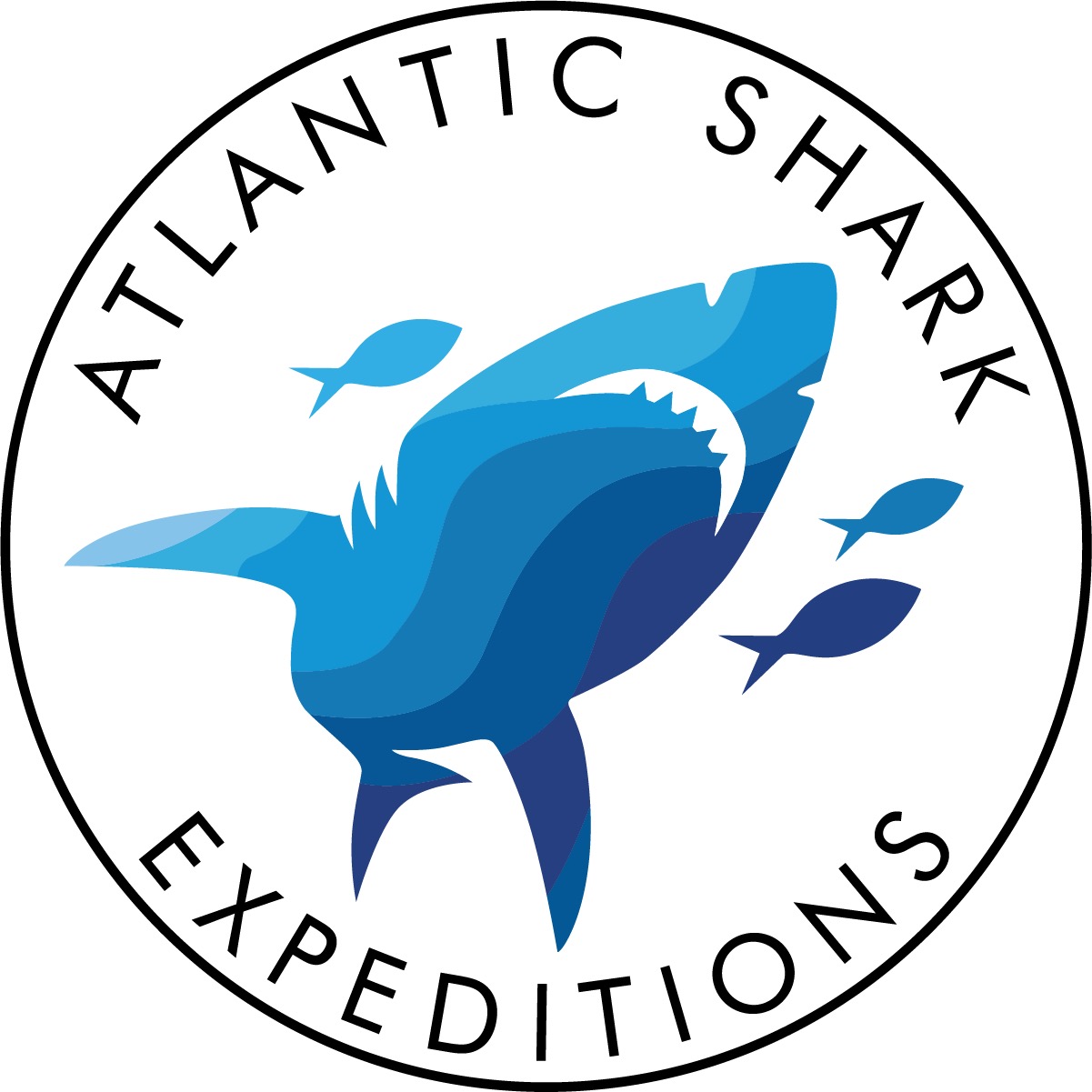



Meet Neil Hammerschlag
I am a marine ecologist and shark researcher based out of Nova Scotia, Canada. I am the owner and president of Atlantic Shark Expeditions, an organization started in 2023, dedicated to providing unparalleled opportunities for the public to safely experience, discover, and help protect the wonders of sharks through ecotourism and citizen science.
My research centers on the behavioral ecology of the ocean’s top predators under global change. I have published over 140 scientific articles and have projects currently underway in Nova Scotia, Florida, The Bahamas, South Africa, and the Galapagos Islands.
In addition to my scientific research, I am known for my innovative community outreach and dedication to fostering STEM education in youth, especially kids from minoritized and disadvantaged groups. For example, I am a faculty with the Black Girls Dive Foundation, where I provide students with unique hands-on training in marine biology and exciting educational field experiences.
My research has been publicized widely in the media, including features on Discovery Channel, National Geographic, NBC’s Today Show, CNN, ABC’s Good Morning America, NPR, LA Times, New York Post, and Forbes, to name a few. I have assisted in the development of several shark specials for BBC, National Geographic Shark Fest, and Discovery Shark Week. My passion for teaching and communicating science has also led me to speak at conferences and events around the world, including TEDx.
2009 Ph.D. Marine Biology & Fisheries, University of Miami
2004 M.S. Marine Biology, Nova Southeastern University
2002 B.S. Ecology, University of Toronto
Get To Know Neil
I was born and grew up in South Africa until the age of 7 when my family emigrated to Toronto, Canada. I then spent most of my childhood in Toronto and ended up at the University of Toronto. With Toronto being landlocked it didn’t allow for a marine biology program, so I took the chance to study my Masters at Nova Southeastern in Florida where there was plenty of ocean. Once there, things kept rolling, and I ended up staying to complete my Ph.D. at the University of Miami, which then became my place of work as a research faculty. During my time spent at the University of Miami, I founded and directed the Shark Research and Conservation program, and after 13 years I decided to move back to Canada to the rising great white hotspot, Nova Scotia. This was the perfect opportunity to start my two new organizations: The Atlantic Shark Expeditions, which focuses on providing the public opportunities to experience, discover and help protect sharks through citizen science, and the non-profit The Shark Research Foundation, which operates globally. Its focus is on understanding how threats from global change are impacting sharks and their ecosystem.
I am like many other people and have always loved the ocean. I didn’t necessarily grow up knowing that this would be my career path, but I was fortunate enough that I spent a lot of my childhood around the ocean. I was snorkeling as soon as I could swim and learning to SCUBA dive as soon as I was allowed. Although I didn’t know what I wanted to do as a career, during high school I was doing well in biology and worked out a way of combining my passion and love of the ocean with my skill in biology. That is when I decided to head into science, and even though I started with a general ecology program, I spent my winter and summer breaks volunteering with different marine biology organizations to get my foot in the door. I participated in as many things marine as I could and found my way into an internship, in California, tagging sharks and fell in love with the animals and started to read about sharks and their declining populations. This was my opportunity to pursue a career in shark conservation in full force, and I haven’t looked back since.
To be honest, every day is different. I wake up each morning and prioritize my tasks for that day. I don’t think a typical day exists, but I think T.V documentaries and books about marine biology and ecology give an impression that all your time is spent on the ocean immersed in fieldwork. I do participate in fieldwork and collect field data, but it isn’t something that I do every day. I spend a lot of time planning for expeditions, writing grants, writing scientific papers, coordinating with groups, fundraising, running statistical analyses, and reading scientific papers. It definitely does differ every day.
In my spare time, if the weather is nice, I love hiking and boating. I am a massive music fan and love live music, so I try and get to as many live music events as possible. I am a big Pearl Jam fan and try and get to as many of their concerts as possible. So far, I have been to over 40 concerts! What is kind of funny is that I do enjoy and choose to go shark diving for fun, with my camera, in my spare time separate to work. If you need to find me in my spare time you will definitely find me either underwater taking photos of sharks or at a Pearl Jam concert.
Tiger shark, for sure! I think it is my favorite because of their beautiful striking features. They are very large with massive eyes, a square pug-like face with bold tripes/blotches across their body. They cruise with purpose and elegance which makes being in the water with them an amazing experience, something I am lucky enough to have done multiple times.
One thing that has always been important to me is public outreach and trying to take science outside of the ivory tower of academia. I love sharing science with people and being creative in the way of funding science and getting our message across. Our goal is to give the public the opportunity to experience sharks in the wild, dive with them and learn about them firsthand from scientists, all while helping fund and contribute to shark research. We have three-day expeditions in Florida where people come and receive shark biology lectures and then dive with sharks. Our biggest operation is based in Nova Scotia where we will be doing daily expeditions to study the great white shark. We will be studying and monitoring the population in the area and understand what is unique about them, understand their ecosystem role, where their critical habitats are and understand the threats that they are facing. While cage diving with these great whites, the ecotourists will be taking photos that will go towards building a great white shark ID database. As citizen scientists that are paying for these adventures, they are contributing to the research through both funding and playing an active role in the science. We want to educate people on this special species and appreciate this species, which in turn will hopefully encourage people to conserve this and other shark species, as at the end of the day you only conserve what you love. Even though their populations are currently stable they take a long time to reach sexual maturity and with threats from climate change, pollution and fishing we need to protect them.
It is really hard to say, and it definitely changes. There are two things that I really like. Firstly, when you have spent a long-time doing preparation and planning with lots of different pieces and loose ends. Then suddenly these all come together. Secondly, the final stage when you publish the results and make them available to the world. A lot of work and teamwork have gone into these results/discoveries, and I love teamwork and then sharing what all of those efforts have discovered.
I have lots of positive memories. Snorkeling with whale sharks for the first time will always be a favorite memory. Being out in the water during a sunset with sun rays shining through the water while watching these big whale sharks as manta rays swam beneath them. It was a pretty epic experience that made me appreciate how special this planet is.
We have tracked tiger sharks and found that they have social preferences that aren’t based on size, sex or kin but just a fondness to a specific shark. By conducting network analysis, which is a little bit like when Facebook suggests a friend to you, we have seen groups lasting up to three years. This is amazing for a tiger shark, which has the pre-conception as being a solitary mindless killer, that can migrate thousands of miles and still be found with the same sharks after years of being apart.
I think this can be a very strong tool. I do think that sometimes it is a great way to get a message across to the public. However, I do think it can be really hard to get the full scope of the message out. It can be a way to help share your research and message that aren’t shown on those shows as it can draw people to a platform that provides all the information. For example, I share my work via these platforms, but then someone may see my name and look me up on social media ,which is where I share my discoveries and can engage them further through that medium. I think they can be a really positive thing but as long as it is done well, which is the most important thing. Sometime science is boring which doesn’t make for a good show, so they have to find that unique balance between being entertaining and informative.
I would say that keeping an open mind is important. You don’t necessarily need to study sharks at school to end up in shark research or marine ecology. I went to the University of Toronto and didn’t study marine ecology until I was in graduate school. Nor did I really have a chance to work with sharks until I graduated. I think the most important thing is to build your skill set and talents. Your written communication needs to be strong and just building up your math, biological statistical and personal communication skills. If you are interested in sharks there are a lot of different avenues to take to get involved with studying sharks and getting involved with them, whether it is in science, education, working as a divemaster, storytelling, government work or non-profit work. It doesn’t have to be academia related – there are so many options.
There are definitely a couple of things. I love discovering new things and that pursuit of knowledge definitely drives me. Also, the need to conserve these animals. I love sharks beyond just a study species, I love sharks like someone loves their pet dog. I have an emotional attachment which drives me to protect them. When I do have the opportunity to go out and spend time with sharks in my spare time, I find that really rejuvenating and continuously reminds me of why I got into this field in the first place. Working in science can sometimes cause a lot of headaches and requires hard work and sometimes you need that reminder of what you are doing all of this for. Seeing sharks in their element is re-energizing and propels me forward to create new knowledge, which will hopefully help conserve them.
Interview conducted in July 2023

